Fellowships Totaling $120,000 Support Graduate Students Studying Human Origins
Published Date
By:
- Kristin Schafgans
Share This:
Article Content
Exploring the origins of humanity—along with the many facets of what makes us human—has enticed researchers across disciplines and centuries. It is also the primary quest of the Center for Academic Research and Training in Anthropogeny (CARTA), an Organized Research Unit (ORU) at UC San Diego. This year, six graduate students have been awarded fellowships totaling $120,000 to support their participation in a three-year anthropogeny program administered by CARTA, while continuing to pursue their doctoral degree.
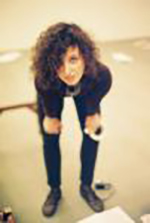
Emily Bovino
The program, called the Graduate Specialization in Anthropogeny, aims to equip the next generation of scholars with the transdisciplinary training needed to advance our understanding of the origins of the human phenomenon. The 2016 fellowships were awarded thanks to private support from Annette Merle-Smith, The G. Harold and Leila Y. Mathers Charitable Foundation, and most recently, a $200,000 pledged gift from an anonymous donor to CARTA. Each fellow will receive $20,000 to support their education and research.
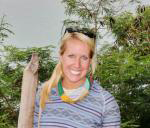
Emily Little
“Understanding our origins as humans has broad impact for our society today, from medicine to the environment,” said CARTA Co-Director Ajit Varki, distinguished professor of medicine and cellular and molecular medicine at UC San Diego and adjunct professor at The Salk Institute for Biological Studies. “We thank the donors who have invested in our efforts to prepare the next generation of scholars and leaders in anthropogeny.”
Since 2010, CARTA has awarded $1,378,797 in fellowships to support 20 students in the Graduate Specialization in Anthropogeny.
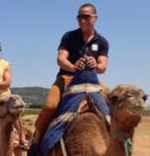
Hans Peterson
The specialization is designed to augment students’ primary academic focus; participants come from a variety of disciplines, from biomedical sciences to visual arts. In addition to taking a series of courses in anthropogeny, students take part in monthly research discussions as well as CARTA’s annual symposia, which draws leading scholars from around the world. At the end of the three-year program, students earn a “Specialization in Anthropogeny,” an academic distinction that complements their doctoral degree.
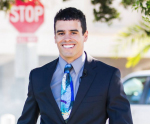
Sequoyah Reynoso
For those considering the program, fellowship support can be a game changer. The specialization offers a unique opportunity for students to gain transdisciplinary research skills, broaden their scientific knowledge, hone their communication skills and network with internationally renowned scholars—valuable assets for careers in both the public and private sector. Yet, the added commitment can be a challenge for students trying to balance the demands of the specialization and their primary department.
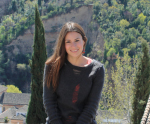
Camille Toarmino
“The CARTA fellowships allow us to attract students from a variety of programs,” said Pascal Gagneux, coordinator of the specialization track, associate professor of pathology and associate director of CARTA. “The support means that students have the freedom to focus on the specialization, without having to worry about securing additional funding for their research. We hear repeatedly from students that the investment pays off; they gain the capacity to understand and integrate scientific knowledge from widely varying fields—a skill that has lasting impact for their professional and personal lives.”
The 2016 CARTA Fellows are: Emily Bovino (Visual Arts), Emily Little (Psychology), Hans Peterson (Psychology), Sequoyah Reynoso (Neurosciences), Camille Toarmino (Psychology), and Haleh Yazdi (Psychology).

Haleh Yazdi
CARTA was established as an ORU at UC San Diego in 2008, formalizing a collaborative research effort that had already been underway for several years. CARTA brings together scholars from UC San Diego and The Salk Institute for Biological Studies, as well as international experts, for multidisciplinary research focused on the fundamentals of anthropogeny. The organization addresses topics that range from human and primate genetics and evolution, to language, communication and cognition, and human society and culture. In addition to Varki, the center’s co-directors are Fred H. Gage, professor at The Salk Institute and adjunct professor of neurosciences at UC San Diego, and Margaret Schoeninger, professor of anthropology at UC San Diego.
To learn more and make a gift, visit the CARTA website, call 858-246-0846 or email ibenirschkeperkins@ucsd.edu.
Share This:
You May Also Like
Stay in the Know
Keep up with all the latest from UC San Diego. Subscribe to the newsletter today.



